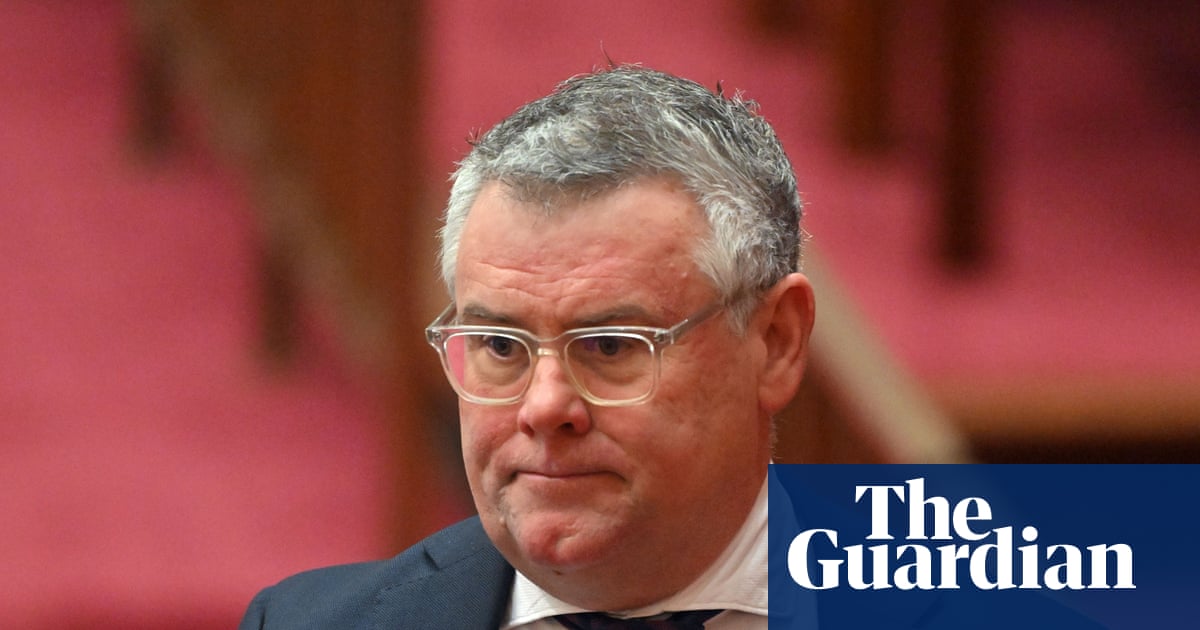With climate trigger axed Labor wants to rush new environmental laws through after ‘positive’ talks with Coalition
Proposed timeframe leaves 12 days to scrutinise most significant changes to national environmental protection regime since 1999 Get our breaking news email, free app or daily news podcast The environment minister wants to pass a major re-write of federal nature laws this year, encouraging miners to lobby the Coalition to work with Labor to help rush it through parliament in the final three sitting weeks. Murray Watt relayed the message in private talks with mining industry leaders in Perth this week after giving a speech promising faster project approvals under a planned overhaul of the Environment Protection and Biodiversity Conservation Act (EPBC Act). On Friday, Watt will brief state and territory environment ministers on the reforms, which aim to finally act on recommendations from Graeme Samuel’s review of the EPBC Act after Anthony Albanese controversially shelved the previous iteration before the May election. Watt has publicly pledged to introduce the bill before the federal parliament rises for the year on 27 November. But Watt has privately expressed a desire to actually pass the laws in that time, which would leave just three weeks, or 12 sitting days, for parliament to scrutinise the most significant changes to the national environmental protection regime since the EPBC Act was legislated under John Howard in 1999. Despite its imminent introduction, details remain scarce. Even the select group of environment and industry lobby groups who meet weekly with Watt to discuss EPBC reform are yet to see draft legislation. Watt has made two announcements: the introduction of “no-go” and “go” zones that either ban or accelerate development approvals; and this week he announced plans for a bi-lateral agreement with Western Australia to allow the mining state – which opposed Labor’s original “nature positive” agenda – to assess projects under federal laws. He is open to similar agreements with other states. But other contentious elements, such as the power of the proposed federal environment protection agency and design of national environmental standards, are either yet to be finalised or remain under wraps. Labor does not have a majority in the Senate, meaning it must strike a quick deal with either the Coalition or the Greens if it wants the laws passed this year. While Watt remains open to either option, senior figures in the Albanese government are understood to favour a deal with the opposition, whose leader, Sussan Ley, commissioned the Samuel review as environment minister in the Morrison government. Watt has been privately encouraging business groups to lobby the Coalition to support the legislation, which would achieve industry’s desired outcome of sidelining the Greens and their push for a “climate trigger” to force decision-makers to factor in a project’s emissions during the assessment process. The shadow environment minister, Angie Bell, said she has had three “positive” meetings with Watt on the reforms, with a fourth imminent, indicating the Ley-led Coalition is far more open to working with Labor than it was under Peter Dutton. The Coalition will wait to see the legislation before deciding a position but the prospect of a deal has increased after Watt this month ruled out a “climate trigger”, even after environmentalists warned the reform would not be credible without it. The major sticking point for the Coalition is likely to be the powers of the environment protection agency, which Bell said must be limited to compliance and enforcement of nature laws – not decision-making on projects. That model was recommended by the Samuel review and has the backing of industry. But it would be a climb-down from the proposal Watt’s predecessor, Tanya Plibersek, tried and failed to legislate in the last term. “There is a healthy level of scepticism around the detail, particularly in relation to a federal EPA and how that would work because there are already seven state and territory EPAs,” Bell said. The Chamber of Minerals and Energy Western Australia, which was among the mining lobby groups that met with Watt in Perth, reaffirmed the industry-wide view that the environment minister must retain decision-making powers. The Greens environment spokesperson, Sarah Hanson-Young, said a set of laws backed by industry and the Coalition spelt danger for nature and the climate. “Let’s cut through the spin: if the mining industry and the Liberals back this package, it says everything. It’s a deal for corporate profits, not a deal for nature or our climate,” she said. “No wonder the minister wants the legislation rammed through the Senate without proper scrutiny.”



